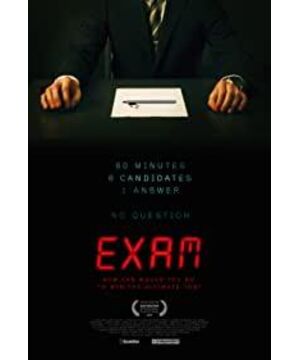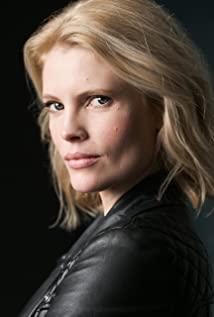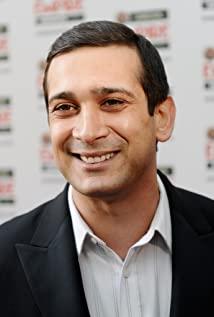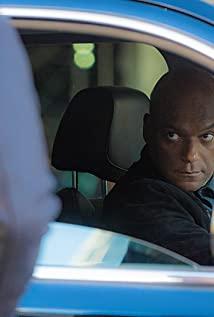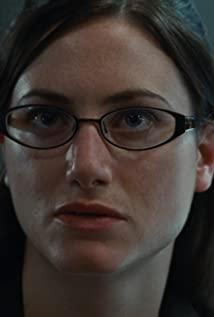This theory of team roles is called Belbin team roles theory. Dr. Raymond Meredith Belbin, a professor in the United Kingdom, published a The book "Management Teams: Why They Succeed or Fail" (Management Teams - Why They Succeed or Fail), in this book he proposed this team role model.
The basic idea is: there is no perfect individual, only the perfect team. No one is perfect, but a team can be a perfect team, as long as it has the following roles appropriately.
There are nine types of team roles:
Zhiduoxing PL (Plant)
typical characteristics: individuality; deep thinking; eclectic
Positive characteristics: brilliant; imaginative; wisdom; broad knowledge and
tolerance Weaknesses: aloofness; not paying attention to details; The role of informality
in a team:
provide advice;
offer criticism and help elicit opposing opinions.
Diplomatic RI (Resource Investigator)
typical characteristics: outgoing; cheerful; enthusiastic; curious; extensive contacts; well-informed, sensitive to information. Positive Traits: Ability to have a wide range of contacts; Constantly exploring new things; Courage to take on
new challenges
Tolerable Weaknesses: Temporary change, change of mind, immediate interest shifts The analogy is: the role of RI to the team is like the role of the antenna to the TV set. RI is the antenna of the team, which is used to receive external signals. Note the difference between RI and PL: PL’s ideas are mostly original, and RI is more It may be that his personality likes to accept new things, so RI is better at integrating fresh information from the outside world.)
Contact individuals or groups with other viewpoints
Participate in consultative activities
Coordinator CO (Coordinator)
Typical characteristics: composure; self-confidence; ability to control the situation
Positive characteristics: inclusive and unbiased towards various valuable opinions and see problems Weaknesses that are more objective
and tolerable: not extraordinary in terms of intelligence and creativity. Play
a role in the team at all
times Think about the team's big goals, clarify the team's goals and direction
Select the issues that need to be decided, and clarify their order
Help determine the team's The role division, responsibilities and work boundaries of the team
Summarize the team's feelings and achievements, and integrate the team's suggestions Typical characteristics of the
promoter SH (Shaper)
: quick thinking;
Low efficiency, self-satisfied challenges, has a sense of urgency, regards success as the goal, and pursues high efficiency.
Weaknesses that can be tolerated: provokes disputes, loves impulsiveness, is irritable, and is easy to put pressure on others; speaks too directly, although SH always focuses on the matter, but often hurts others but not himself.
Role in the team
Look for and discover possible scenarios in team discussions. Once SH finds a plan or model that it thinks is good, SH will hope that the team will follow this plan or model, so SH will strongly sell the plan or model that it thinks is good to team members.
Shape tasks and goals within the team
Drive team consensus and move toward decision-making. Often consciously or unconsciously, SH plays the role of a second leader in the team, that is, SH may not be the nominal leader (CO is generally a leader), but SH gives the feeling of a second boss.
Monitor ME (Monitor Evaluator)
Typical Traits: Sober; Reasonable; Cautious
Positive Traits: Strong Judgment; Discerning; Practical
and Tolerable Weaknesses: Lack of ability to inspire and motivate others; not easily motivated and motivated by others; lack of imagination, lack of enthusiasm.
Role in a team
Analyse problems and
situations Simplify complex material and clarify ambiguous issues
Evaluate the judgments and roles of others.
Basically ME is the kind of person who likes to pour cold water on others. Relying on their strong analytical and judgment ability, MEs dare to speak out and insist on objections. But ME is very necessary for a successful team, because ME is the goalkeeper of the team. A team without a goalkeeper cannot win.
TW (Team Worker)
typical characteristics: good at interpersonal communication; gentle; sensitive, sensitive to interpersonal relationships (note that RI is sensitive to external information)
Positive characteristics: have the ability to adapt to the surrounding environment and people; can promote the team's Cooperate; listen best.
Tolerable Weaknesses: Often indecisive in times of crisis, generally moderate.
Role in the team
Support and help others
Break the silence in discussions
Take action to reverse or overcome differences in the team
Doer CW (Company Worker, later renamed Implementer in 1988)
Typical Traits: Conservative; Submissive; Pragmatic and Reliable .
Positive characteristics: organizational skills, practical experience; hard work; self-discipline.
Tolerable Weaknesses: Inflexibility, weak adaptability; disinterest in uncertain ideas.
The role in the team
translates conversations and suggestions into practical steps.
Consider what works and what doesn't.
Organize recommendations to align with agreed plans and existing systems.
Doers are good executors, able to reliably execute a given plan, but not necessarily good at formulating a new one.
Perfectionist FI (Completer Finisher)
typical characteristics: diligent and orderly; conscientious; have a sense of urgency
Positive characteristics: idealist; pursuit of perfection; perseverance
Weaknesses: often clinging to details; anxiety (notice the difference with SH, SH has a sense of urgency, but FI is a sense of anxiety); not free and easy
Role in the team
Emphasizes task objectives and activity
schedules Finds and points out mistakes, omissions, and neglected content in the
program Stimulates others to participate in activities and motivates Team members have a sense of urgency
. Specialist
This type of expert is a new type added in 1988.
Traits of an Expert: Honest, self-starter, dedicated, and able to bring knowledge and skills when needed.
Acceptable Weaknesses: The professional field is relatively narrow, only know the special professional field that he is good at, and have little interest in other things.
1. Coordinator (CO: Coordinator) - mature, confident, trustworthy, good chairman, clear goals, can facilitate decision-making. Not necessarily the smartest person.
2. Trainer (PL: Plant) – creative, imaginative, good at breaking the rules and solving difficult problems. Acceptable Weaknesses: Not good at dealing with ordinary people
3. Shaper (SH: Shaper) is energetic, outgoing, excitable, loves challenges, loves pressure, and looks for ways to face difficulties. Acceptable Weaknesses: Easy to lose temper.
4. Team Worker (TW: Team Worker) – sociable, gentle, empathetic, helpful, listening, constructive, avoid disagreements. Acceptable Weaknesses: Indecision in difficult situations.
5. Completer (FI: Completer Finisher) – Hard-working, conscientious, serious, good at finding mistakes, punctual. Acceptable Weaknesses: Sometimes excessive worry, reluctance to empower others.
6. Implementer (CW: Company Worker, or Implementer) – Disciplined, trustworthy, conservative, efficient, turning ideas into actions. Acceptable Weaknesses: Somewhat stubborn.
7. Resource Investigator (RI: Resource Investigator) – Outgoing, enthusiastic, chatty, exploring opportunities. Acceptable Weaknesses: Lost interest quickly after a moment of enthusiasm.
8. Specialist - Honest, self-starter, focused, brings knowledge and skills when needed. Acceptable Weaknesses: The area of expertise is narrow.
9. Monitor evaluator (ME: Monitor evaluator) – calm, strategic, judgmental, comprehensive, and good at making judgments. Acceptable Weakness: Lack of ability to push and inspire others.
One-to-one correspondence except for guards
View more about Exam reviews


